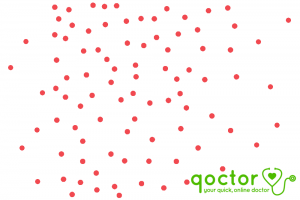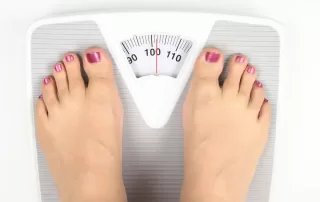Acne treatment
Welcome to Qoctor’s online doctor service which can provide assessment for Acne. Answer some online questions, then book a video consultation with an AHPRA-registered doctor. Repeats available (subject to assessment).
The consultation fee is $29.99. If a prescription is advised, it can be sent as an eScript to your phone OR electronically to your local pharmacy. Alternatively you can have medication delivered by an Australian partner pharmacy- in this case, the cost of medication is added at the checkout. All treatment and advice is issued subject to your doctor’s assessment.
About Acne
- Acne is a common cause of spots for people in their teens to mid twenties, though older people may be affected too.
- It usually occurs on the face, but may also affect the back and chest.
- It can lead to different types of lesions in different people, and can also vary in severity- in certain cases it can lead to permanent scarring.
- Effective treatment may involve acne medication and/or topical preparations- a specialist opinion may be advisable if not responding to these measures.

FAQs about acne & acne medication
- Acne is a common skin condition which leads to spots on the face, back and chest- it is most common in the teens and twenties, though some people also get it later in life.
- Normal skin has “sebaceous glands” which produce natural oils.
- During puberty, the skin produces more of these oils, which may cause blockage of the sebaceous glands.
- The trapped oils in the glands allow bacteria (Propionibacterium acnes) to multiply. Dead skin cells may also build up in the pores.
- This in turn results in an immune reaction, inflammation and infection in the skin.
- Experts are not sure why some people get acne while others don’t, but there seem to be some factors involved, including: hormonal changes during puberty, PCOS (polycystic ovarian syndrome), other hormonal disorders, smoking, stress, exhaustion, using oily skin products, family history of acne.
- Some medications may make acne worse, such as progesterone only contraceptives, steroid creams (used in eczema), anabolic steroids, Lithium and some antiepileptic medications.
- It is not certain whether diet has any effect on acne, though some people find that cutting down on processed meats and refined carbohydrates may help. Others report that eliminating milk-based products helps, though there is no clear scientific evidence this is effective for most people. There is also no evidence about any benefits from vegan or vegetarian diets, or from taking probiotics.
Acne is common, but only one in five people with acne get scarring. Scarring is caused when the affected skin pore swells and breaks down into the surrounding tissue. The skin responds to repair the area, by forming new fibrous tissue, “collagen”. Scars can form in different ways: if there is a loss of tissue in the area, this can leave an indentation, such as “ice pick scars”, “rolling scars” or “boxcar scars”. A raised scar can form where too much collagen is produced- these are also referred to as hypertrophic or keloid scars.
Regardless of the type of scar, there are treatments available if necessary, so if you are troubled by acne scars you can discuss your options with a GP or dermatologist.
If at any time your acne seems severe or uncontrolled, especially if you have large painful acne cysts, it’s important to speak to a doctor, as you may benefit from a referral to see a dermatologist to get stronger treatment, to prevent further lesions and scarring.
The online doctors at Qoctor can offer assessment for acne that is mild to moderate.
Every person is different. Some people can successfully manage their acne with over-the-counter creams and gels from the pharmacy. Others may need stronger prescription-only creams and gels. These treatments work in a variety of ways, and depending on the type of acne spots, certain ones may be more effective.
Non-inflammatory lesions:
- Whiteheads or “closed comedones”– these are closed, oil-plugged pores.
- Blackheads or “open comedones” -these are open plugged pores — the oil turns brown when it is exposed to air.
Inflammatory lesions:
- Papules- these are small, sore red bumps
- Pustules- these are also known as pimples, and are papules containing pus
- Nodules- these are large, solid, painful lumps under the skin
- Cysts- these are large, painful, pus-filled lumps under the surface of the skin
Benzoyl Peroxide and Salicylic Acid
The most commonly used over-the-counter cream is Benzoyl Peroxide- a big advantage of this product is that bacteria don’t get resistant to it over time. It can help a variety of the lesions described above, particularly if used with a retinoid cream/gel (see below). It’s also often used with antibiotic creams or pills to stop bacterial resistance developing. Salicylic acid is also present in quite a few over the counter creams, cleansers and face-washes- it breaks down comedones, and may be of some benefit.
Retinoids and Topical Antibiotics
Prescription-only topical treatments known as “retinoids” are used in mild to moderate acne- they can prevent the formation of comedones (blackheads and whiteheads). They may also helpful against inflammatory lesions such as papules and pustules. They may be recommended by themselves for non-inflammatory acne (comedones), but WITH antibiotics if there is inflammatory acne present (papules, pustules). They can be helpful also when oral treatments are being stopped, to try to maintain any improvements achieved. Topical antibiotic preparations are used for mild to moderate inflammatory or mixed acne, but it’s usually recommended they are used along with Benzoyl Peroxide to prevent antibiotic resistance.
Please note, all treatment and advice is issued subject to your consultation and the doctor’s assessment.
Several different oral antibiotics are commonly used for the treatment of mild to moderate acne. These may be tried when topical acne treatment (acne creams and gels) have not worked, or have caused side effects.
Start here to book an appointment with one of our online doctors to discuss management of acne.
In some girls and women the pill (or COCP) can be used in the management of acne. The pill reduces the amount of “androgens” (male sex hormones) circulating in the body. Androgens are present in the female body, and may be associated with acne, as they cause the skin to produce more “sebum” (oils), particularly during puberty. The pill can address this. It is important to note that the “mini pill” or “progesterone only pill” does not reduce circulating androgens, thus does not appear to help acne in this way. Also, different brands and formulations of the COCP exist, and different ones may be more effective than others, in different individuals.
Some women find the pill doubly useful as a way to manage their contraception needs as well as their acne.
To book a consultation with a doctor to discuss the pill, start here.
Please note, all treatment and advice is issued subject to your consultation and the doctor’s assessment.
The online doctors at Qoctor can assess you for suitability to be referred to see a dermatologist for acne assessment and management. Please note, all treatment and advice is issued subject to your consultation and the doctor’s assessment. The fee for a telehealth appointment is $24.99.
What can a dermatologist do for acne?
A dermatologist can assess your acne and may choose to prescribe many of the same treatments (creams, gels, antibiotics) that may be prescribed by a GP, but a dermatologist can also offer additional advice and management options for acne that is not well controlled. Dermatologists can prescribe Isotretinoin (Roaccutane), as well as other specialist treatments for acne scars. It is important to consider seeing a dermatologist if you have bad acne that is not responding to treatment, particularly if scars are occurring.
Health Library- Acne
Learn more about acne- the various types of acne medications and which acne treatment works for which type of lesion.
Understanding PCOS- the key facts
What is PCOS and how is it diagnosed? symptoms & diagnosis related health issues treatment Around 1 in 10 women are thought to have “polycystic ovarian syndrome” , also known as PCOS - so it’s pretty common. There are a few ways to make a proper diagnosis of PCOS- one of the most common methods states that at least 2 of the following features need to be present: (a) polycystic ovaries - lots of small cysts on the ovaries, as seen on a pelvic ultrasound scan (b) raised level of male hormones such as testosterone – this can be checked by a blood test (c) reduced ovulation (this usually means having few or no periods) It’s also necessary for your doctor to rule out any other medical conditions that can cause problems similar to the symptoms of PCOS You can have [...]
Acne- getting the most from creams & gels
Acne- which creams and gels are the best? Acne is a very common skin condition- whilst it is most prevalent amongst teenagers, unfortunately it sometimes continues into adulthood. There are many good treatment options: most people start with over-the-counter products available from a pharmacy, but if these don’t work, a doctor can prescribe stronger creams/gels, or oral antibiotics. The contraceptive pill can also help acne in women. And if these options fail, a dermatologist may be able to help. With the wide variety of creams and gels available, it can be hard to know what to choose. A good starting point is to figure out what kind of acne you have- i.e. what type of lesions are most troublesome for you. There are two main types of acne lesion- non-inflammatory and inflammatory. Many people have a mixture of these. Different treatments may help one type more than [...]


